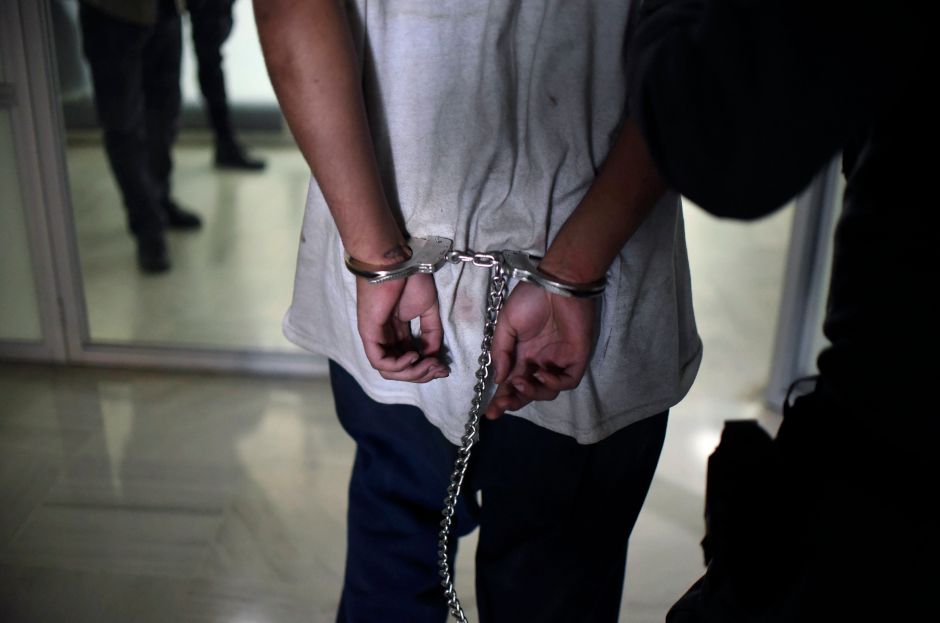Supporters of the measure say that the bond system is a practice “that doubly criminalizes the poorest”; while opponents say the proposal will only increase the ability of judges to incarcerate people.
For years the state of California has used a bail system – financial payment – to release people who are detained on suspicion of committing a crime.
This payment must be made before it is proven that the people are guilty and without a process that proves that they are a threat to society in case of paying the bond or not.
People and activists who oppose this system claim that this limits the freedom of people with low resources and who do not have economic possibilities.
This means that non-violent, misdemeanor suspects who cannot post bail must wait in jail until their hearing date, away from their family members and affecting their jobs, which in many cases they lose, even if they are actually innocent. .

While people with more economic resources accused of any crime, including serious violence, can go free, simply by paying their bail and regardless of whether they are a threat to society.
For all this, people who oppose the bail system consider that this system is unfair and criminalizes people also for being poor, since they can lose their jobs and keep them incarcerated just for not having money to pay for their freedom. .
To make a fairer justice system, supporters like Los Angeles 14th District Councilman Kevin de León say vote yes on Proposition 25.
A vote in favor of Proposition 25 defends the challenged legislation, SB 10, which would replace cash bail with risk assessments for suspects detained awaiting trial. This means that the person will be released before her trial only if she is not a threat to society and not based on her economic power.
Currently the county superior courts set bail amounts and can be adjusted by judges.
In this way, suspects can post bail with their own money or through a commercial bail bond agent who pays the full amount of the bail in exchange for a non-refundable premium, which in California is usually around 10 percent. .
De León said that if Proposition 25 is passed, California will have the opportunity to pass historic criminal justice reform.
“It is achieving the end of what we believe is a predatory system of monetary guarantees and shifting towards a new paradigm that judges each person based on their individual background, rather than how much money they have in a wallet,” De León said. “All other nations in the world, except the United States and the Philippines, do not use a money bail system because it is unsafe, unfair and extremely expensive.”
In the United States, he added, those who are disproportionately affected are people of color, Latino immigrants and undocumented immigrants.
De León shared the case of Kenneth Humphrey, who in 2017 was accused of stealing $ 5 and a lotion from his neighbor in San Francisco. The court set his bond at $ 350,000.
“This is money that neither he nor his relatives had to pay, much less the non-refundable $ 35,000 to deposit with a commercial surety agent,” said the councilor. Due to the offense, the 62-year-old had to remain in the county jail for nearly a year.
The councilman also explained the Stanford University legal case, where a young white freshman named Brock Turner, originally from Ohio, raped a young student on the Stanford campus.
On this occasion, the young man was set a bond of $ 150,000, his family paid $ 15,000, and he was able to remain free until his trial day.
“It is the difference between those who have the financial means and those who do not,” said De León. “There are those who remain in jail for many months, if not years, until the court date arrives, and those can walk freely.”
The California Public Policy Institute recently revealed that annually up to 150,000 people remain in detention before facing trial in California jails.
John Bauters, an Emeryville, Northern California city councilman and attorney, said Prop 25 allows suspects arrested for lower-level nonviolent crimes to return to their homes and jobs instead of being locked up in a cell.
It also makes it more likely that they can cooperate with your defense. The new system implements a policy based on risk as opposed to the policy that exists today, based on wealth, Bauters said.
“It would be a [sistema] that really assesses its potential risk to the community, the threat it could pose to the victim, and the likelihood that it will appear at trial and respond to the crime against it, ”added Bauters.
Opponents of Proposition 25 include Human Rights Watch, which indicates that Californians should focus their efforts on replacing the bail system with reforms that reduce pretrial incarceration and guarantee meaningful due process for all accused persons. .
“With the current system, the judges set a high bond knowing that it will keep people locked up. With Proposition 25, they can order someone to be locked up without even setting an amount, “said John Raphling, senior researcher on the criminal legal system at Human Rights Watch on its website. “The new system simply increases the ability of judges to incarcerate people.”
Human Rights Watch recommends that instead of replacing monetary bail with risk assessment tools, legislators set strict limits on who is eligible to be incarcerated before being convicted.
Additionally, they ask that strict due process requirements be established to ensure that everyone has a fair hearing on their individual circumstances.








